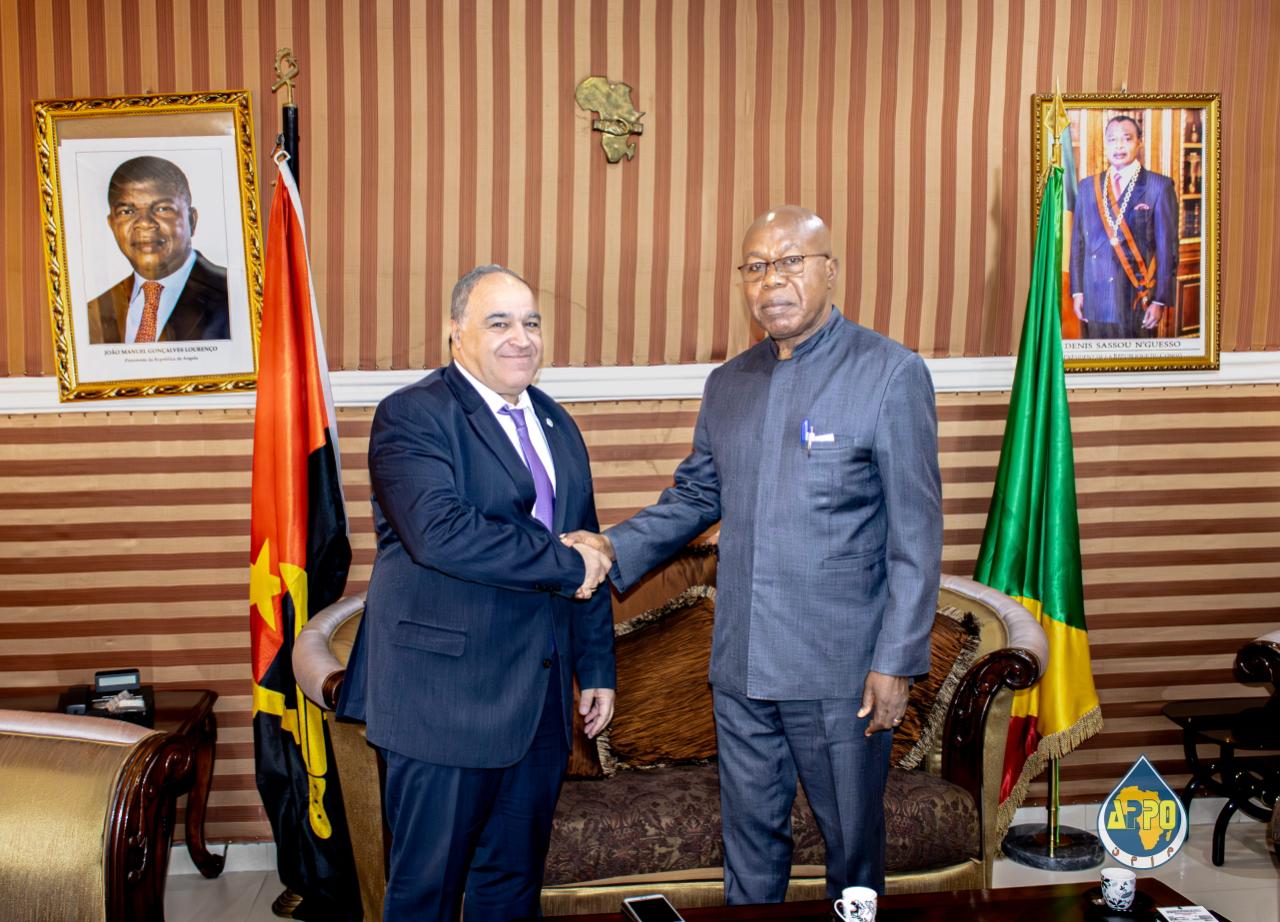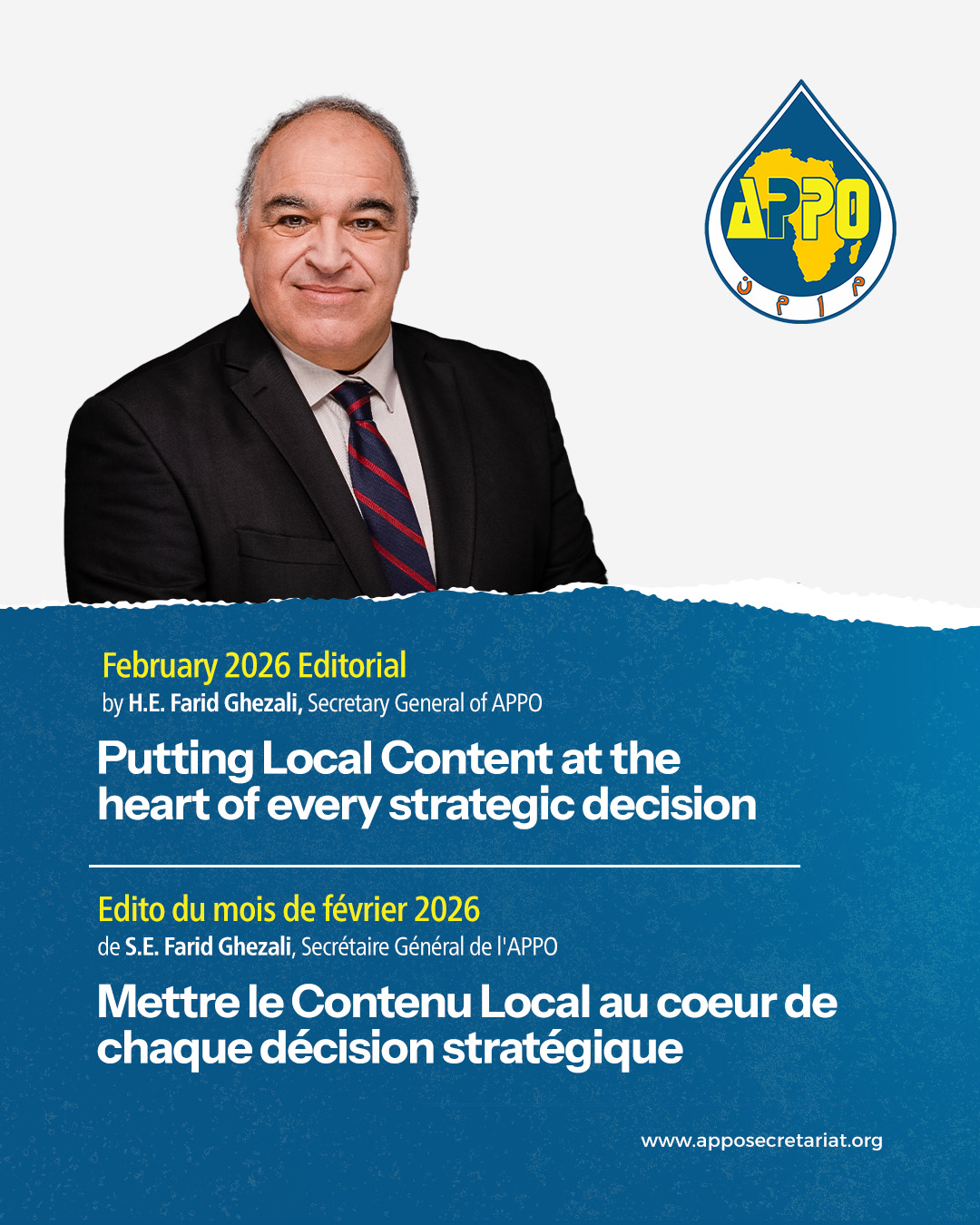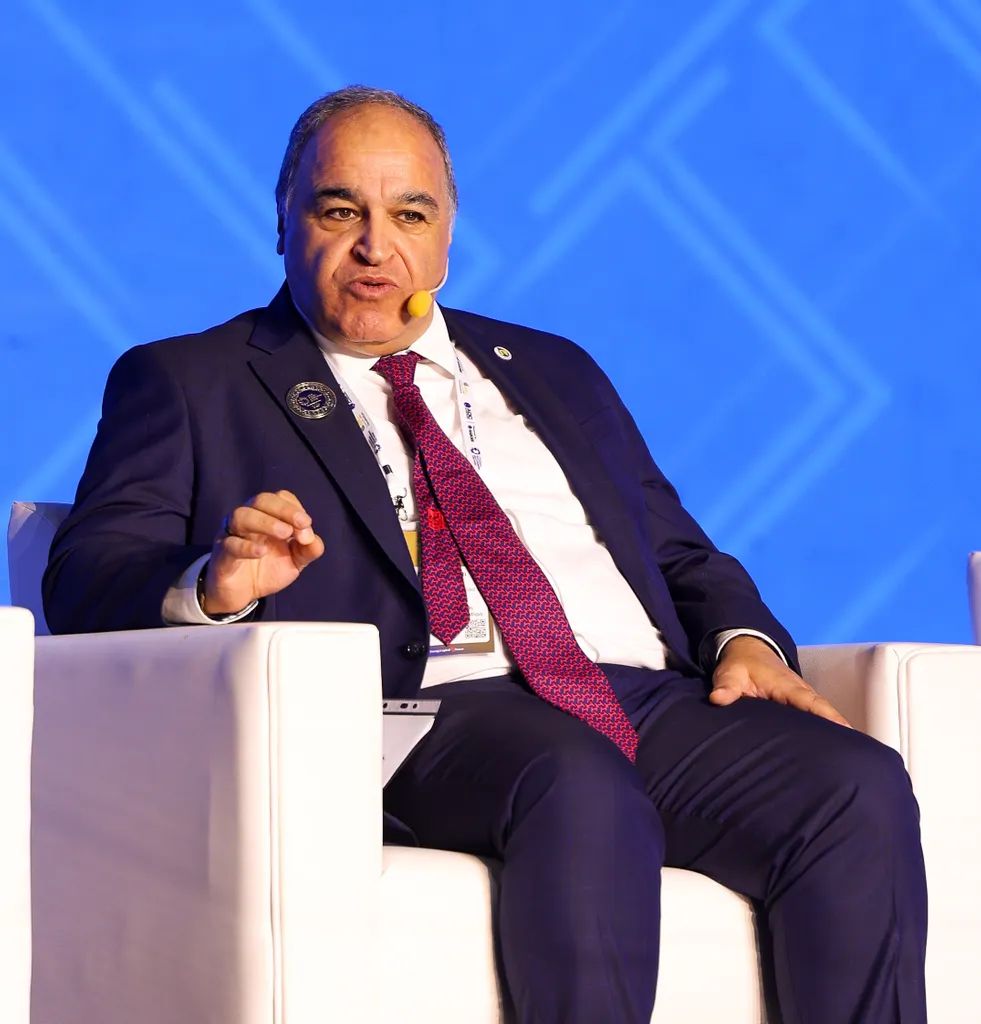Being Keynote Welcome Address to the First MSGBC Oil, Gas and Power Conference, Organized by Energy Capital and Power, under the Auspices of the Ministry of Petroleum and Energies of the Republic of Senegal, in Dakar, Thursday December 16 – 17, 2021.
- Excellency Macky Sall, President of the Republic of Senegal and Special Guest of Honour at this Conference, Her Excellency Aïssatou Sophie Gladima, Minister of Petroleum and Energies of the Republic of Senegal and Chief host of this Conference, Ministers of APPO Member Countries participating in this Conference, other Ministers, H.E Mohammed Sanusi Barkindo, Secretary General of our senior partner organization, the OPEC, my brother the indefatigable NJ Ayuk, Executive Chairman of the African Energy Chamber, distinguished Speakers and Panelists, the organizers of this Conference, Africa Energy, Capital and Power, other participants, distinguished ladies and gentlemen.
- APPO is honoured to be invited to give a keynote welcome address to the first MSGBC Oil, Gas and Power Conference, being held under the high patronage of HE Excellency Macky Sall, President of the Republic of Senegal and I should like to begin by commending the government of the Republic of Senegal for this very inspiring initiative. I commend you because you are providing a forum for Africa to continue the discourse on the way forward for its people in the context of the global energy transition. Hopefully, these conversations that are taking place within the industry in various capitals of Africa shall lead to the emergence of a consensus on the way forward for our continent and its people.
- Your Excellency, keynote addresses are meant to raise salient issues, questions that beg for answers. In some cases they suggest some answers, but not always. What is important is to bring to the fore, the salient issues. The various sessions planned for today and tomorrow shall hopefully try to answer these questions.
- Three questions readily come to my mind when I consider the topic given to me to speak on: Overview of the African Oil, Gas and Powers Sector, in the context of the Global Energy Transition.
- The first is Energy Transition: Why now? As most of us are aware the global paradigm shift in energy sources did not start in Africa or the underdeveloped countries of the world. On the contrary it started in today’s developed countries. But all countries, rich and poor, developed an underdeveloped, have been drafted into it, and we are all singing the same chorus.
- What triggered this global paradigm shift? Is it a sudden discovery by the Scientific community in the last quarter of the last century that the production and the use of fossil fuels emit GHG, which is dangerous to the atmosphere? The answer is no. For as early in 1986, Western scientists had discovered that fossil fuels emit GHG which is harmful to the atmosphere. Why was that knowledge hidden from the public at that time? The answer is that Europe and America needed a lot of energy at that time to consolidate their industrialization and to grow their economies and transform the living conditions of their people. And fossil fuels were the best energy source for that. So, in the national interests of these countries, that knowledge was suppressed, and the world continued to use fossil fuels for many more decades.
- Then something went wrong in global geopolitics. The unthinkable happened. America and some European countries that had grown to depend heavily on foreign fossil fuels for many decades, woke up in 1973 to an oil embargo by their major suppliers, the Kuwait-based Organization of Arab Petroleum Exporting Countries, OAPEC, not to be mistaken for the Vienna based OPEC, over the Arab-Israeli war. For the first time since the end of the World War II, America found itself rationing fuel at pump stations. That experience made these countries resolve to have energy security, by which they meat to wean themselves from dependency on foreign oil. The initial strategy was for the state to support local production of oil and gas. Huge amounts of money was spent on research to make shale production commercially viable. The global oil market was also manipulated from 2003 to artificially raise conventional crude prices in order to make shale oil competitive. That largely explains the spiral rise of oil prices from about USD 25 per barrel in 2003 to about USD 150 in 2008.
- When that strategy failed, the West decided to find another energy source and immediately embarked on a policy of supporting research on renewable energy. To justify the huge amount of financial support for renewable energy research, the authorities also commissioned studies on the adverse effects of fossil fuels on the planet. As noted earlier, this is not unknown. For about 100 years, the Western scientific community had known about emissions from fossil fuels. But those findings were not popularized because today’s industrialized countries needed that source of energy to consolidate their industrialization and economy growth. They needed fossil fuels to transform their transportation, their agriculture, medicine and the entire fabric of their society. They needed that energy to propel their societies from reliance on wealth created from the production of manufactured goods in factories, which is energy intensive, to post-fossil fuel economy, where wealth is created from the manufacture of knowledge and artificial intelligence and therefore requires little energy. And that is where these societies are today.
- So, from the last quarter of the 20th century a series of researches were commissioned to prove and popularized what had already been known a century earlier, namely that fossil fuels produce GHG which are detrimental to the planet ant by extension human existence. A lot of money was devoted to the climate project, including at the UN. There was a concerted effort to demonize fossil fuels in order to popularize renewable energies.
- Excellencies, the point I am trying to make is that for as long as today’s industrialized countries needed fossil fuels to grow their economies and transform their societies, they did not allow climate change to become a global issue. Now that they have transformed their economies to rely less on energy, but more on knowledge production and artificial intelligence, and the poor countries of the world, particularly Africa, are on the verge of industrialization, we are being told that the energy that transformed the economies of today’s industrialized nations, is not good for the world to use.
- The fact is that after China, the next global power shall be in Africa and every effort is being made to kill the rise of Africa. The question then is: If the developed countries were the ones blessed with abundant fossil fuels as Africa is, with 125 billion barrels of crude oil and over 500 trillion cubic feet of gas, will they abandon fossil fuels, or will they develop the technology to make it environmentally friendly? Necessity is the mother of invention. Many believe that if the developed countries want to, they can develop and commercialize technologies that will make fossil fuels good for use. I recall vividly that during the 3rd Summit of OPEC Heads of States in Riyadh in 2007, Saudi Arabia and some other Members of OPEC offered USD 1 billion to any research institution ready to work on developing and commercializing technologies that will make oil environmentally friendly. None of the world’s famous petroleum institutions went for the grant.
- The second issue I would like to highlight is the implication of the successful pursuit of the objectives and pathways of energy transition, as currently defined, on African oil and gas producing countries. I emphasize the African oil and gas producing countries decidedly. Not because we are the only or biggest producers of either oil or gas. Indeed, there are individual countries, outside of Africa, whose daily oil production far exceeds the total production of all of Africa. The emphasis on Africa is because our oil and gas producers are the most dependent on oil and external revenue to meet some of the basic obligations of the state. Others have wisely succeeded in diversifying their economies, such that the impact of the transition will not be as harsh to them as may African producers.
- Another implication is that we are going to declare a large volume of the 125 billion barrels and over 500 tcf of gas as stranded assets when we have over 900 million Africans living without access to modern energy and some 600 million with no access to electricity.
- Your excellency, distinguished guests, on the final point for consideration, namely the way forward, I would like to emphasize that for APPO and I believe for Africa, climate change is real and we support measures aimed at protecting the environment for this and future generations. But such measures must conform with the “principle of equity and common but differentiated responsibilities and respective capabilities, in the light of different national circumstances” as enshrined in the Paris Climate Agreement as this principle was key in assuaging the fears of developing countries, especially oil and gas producing countries, in the early years of the climate negotiation process.
- Distinguished ladies and gentlemen, it is sad that the above key principle of the Paris Climate Agreement, the inclusion of which was central to getting developing countries, including APPO Member Countries, to accede to the Agreement, has now been relegated to the background, limiting it to discussions about financial assistance to poor countries to enable them execute energy transition programs. In other words, we are being told that our key concerns can be taken care of with money, hence the establishment of the Climate Fund essentially for amelioration and adaptation as poor countries make the transition from fossil fuels to renewable energies.
- But is the principle of equity and common but differentiated responsibilities and respective capabilities … All about financial assistance? Does it not also include technological assistance, like the provision of technologies that will enable poor countries with huge petroleum reserves to produce these resources for the use of their people, with minimum carbon footprints? Why are we not talking about popularizing such technologies as CCUS, DAC, Carbon Sync etc.? Why is all the conversation on adaptation and mitigation? Why are we being pressurized to abandon what we have in abundance for what we have no technology for?
- Talking about climate finance, a number of questions beg for answers:
- What guarantee have we that the pledged amounts will be redeemed, given the unenviable history of redemption of past pledges on climate issues?
- How much of the funds are going to mitigation and how much to adaptation?
- How much of those funds are grants and how much are loans to be repaid with interest in the future?
- What conditions are attached to the allocation and disbursement of the climate funds?
- Will taking those funds now lead Africa back into the debt trap?
- Ladies and gentlemen, whatever the answers to the above questions are, they point to the need for Africa to consider looking inwards for solutions to its many problems. We cannot afford to classify 125 billion barrels of crude oil and hundreds of trillions of cubic feet of gas as stranded assets when we have the largest proportion of the global population living in energy poverty, when our continent with 17% of the world population contributed no more than 3.5% of global GHG emissions, and when we have neither the capital nor the technology for the new energies but at least have some of the basic infrastructure of fossil energy.
- Energy transition should provide Africa an opportunity to take its destiny into its own hands. For oil producing countries, this is the time to create a continental or regional oil and gas market. This is the time to pool resources together to create or expand cross-country regional energy infrastructure.
- This is the time to create or expand refineries and petrochemical plants to serve the continent and its regions, not just countries.
- This is the time to look beyond national local content in the oil and gas industry on the continent to regional and continental content.
- There is a limit to what we can achieve in local content as individual countries. But as a collective, Africa can scale this critical hurdle. And that is what APPO is poised to do. And on behalf of APPO, I should like to thank HE President Macky Sall for setting in motion the process of making Senegal a full member of APPO. There is no other way Africa can move forward.
- And there is no better time than now that we are losing our traditional markets for oil and gas and fortuitously at a time the Africa Free Continental Trade Agreement has come into force. The time to act is now.
- Thank you Mr. President. And I thank you all for your kind attention.



